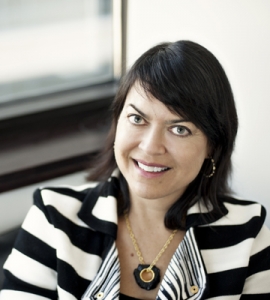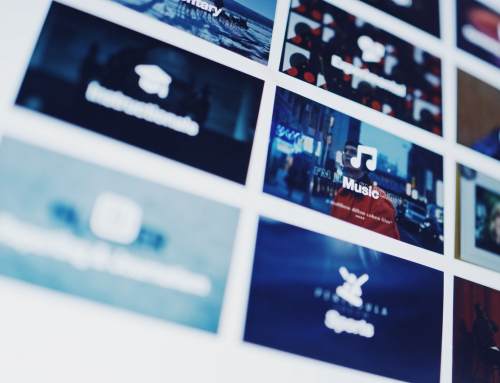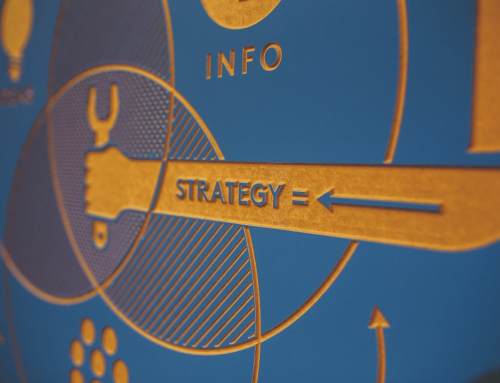Digital marketing is a rapidly changing industry, and it can be hard to keep up with all of the changes. But there are people who do that. Recently, our own Paul Dreblow talked with Nina Hale, the founder of Nina Hale Inc.
PD: Thanks so much for taking time to speak with me, Nina. Tell me how you came to get into the business you are in?
NH: I’ve been interested in the internet since 1983 when I was surfing the web on prototype communities from a dial-up modem in my parent’s basement. I founded a search engine marketing agency 9 years ago after having worked in the field for a quite a while. And when we started, we were sort of internet digital strategy, or I was. And then we shifted our focus to be just about search engine marketing. That specialty focus was a really good move for us at the time. We’re now almost 50 people, and we like to say, and I think it’s true that we’re the largest search engine marketing company in Minnesota and probably one of the larger ones in the Midwest as well. For one of your questions later on, it’s sort of what has changed and what has been changing. The biggest change that I’ve seen since I founded the company is, of course the enormous rise in mobile, so the availability of content anywhere you go at any time, and the need for instant information. And then also the incredible complexity of search engine marketing. So search engine marketing is no longer something that is done just by changing the meta-code on your website and getting inbound links to your site. It’s what it’s always been about that Google is really interested in authentic authoritative content. But it’s that there’s so many more avenues and channels in which to publish a really well thought out content marketing plan and content strategy, and the search engines are much more able to understand the complexity of that holistic sphere. And so that has really changed where, we were always interested in content, we were always interested in in authority and inbound links, but now it’s become intertwined with everything that you’re doing and a much bigger part of understanding your holistic approach to marketing. So that’s been a really big change. And even paid search has really changed. Where paid search used to be a very very specific single tactic that a company could call us and there were almost no additional steps that were needed or different dependencies. And now paid search is really involved again with, what is your content marketing plan? What is your sales funnel? How are you going to build loyalty? And also how are you going to reach people through using paid search as part of an attribution model? So, the full strategic view of targeting. Information has become so precise, and so segmented, the information that we know about people when they’re online that we are able to have can almost rival the efficiency of paid search. So those have been really huge increases, my business has turned from a very tactical business to a very strategic planning sort of solution, so to speak.
PD: So you really are seeing some dramatic changes since you started, and that appears to have a direct effect on how you interact with clients I would presume.
NH: Yeah, it used to be the client sort of knew what they wanted, and they would call us and say “hey, we want a different search engine marketing company.” And we would say “yes you do!” And then we would go in and do their search engine marketing. Now a client will call us and say “hey I want search engine marketing.” And we’ll sort of say “Well, why? What do you need? What are you trying to get at? How are you talking to your customers? What are your customers doing online?” And there’s times where I will frequently tell a client “no, you don’t search engine marketing now. You do later on, but you need these other things first.” So that has really changed, where so much of what we’re doing is trying to understand what the client’s needs are and what the best phased approach might be. So we’ve become much more digital marketing planning, than straight out tactical execution, and that’s been a huge change. Now, we still work with a lot of other agencies, we do not execute everything. We don’t do brand strategy, we don’t build websites, we don’t create banner ads and do creative designs. So we work with a lot of different agencies, but it’s trying to understand how what we do, which is lead generation and ecommerce, how that fits into what everybody is doing, and trying to tie everything together. And in a lot of cases, what we do touches almost every single step in the process, and so it needs to integrate with that.
PD: So it sounds like you are taking a much more client centered and “custom approach?”
NH: And trying to guide them to where I’ve said to a client “This isn’t going to be as successful right now as it would be when you do these other things. Let’s make sure these other things are set up. Do you have a content strategy? Do you understand your audience and where they are? Do you understand how and when search comes into play here?”
PD: So does that mean your company gets into branding as well?
NH: We don’t do brand strategy. We don’t rebrand a company. We will develop content pillars, we’ll try to understand what the brand promises are, but we don’t develop those brand promises. We don’t develop the main brand message. We don’t do those types of things. So we work really closely with other agencies or clients. We don’t do any code, any development. We have a lot of former developers because SEO has to really understand how a website works, and the technical functionality of it, and what they think may need to change, but we don’t actually write any code ourselves.
PD: OK, I can tell you are excited by what you do, is there one aspect of the work in particular that stands out?
NH: I love keyword research! I love learning what it is that makes people pick, and what they’re interested in, and what they’re looking for. That is fascinating to me. And I love using that to learn more about my clients’ business. So, a client will come to me, and I don’t know anything about their industry. By doing keyword research, not only do I learn all sorts of fascinating things about people, but I’ll get a really good sense of their business as well because of how it is expressed in searches. And that is fascinating to me. I love that piece of it. And I love putting together that strategic plan and talking to clients and saying “You know what? If we put these things together, I think it’s going to be awesome. I’ve seen it happen with these other clients, and it’s going to be great.” And I love that. I am a terrible sales person for a company that has grown this well. I’m not a terrible sales person on that I do a bad job of it, because in fact I do a fairly good job of it, because I’m passionate and interested. But I hate asking people for money. I hate it. That’s why I liked having long term clients. I just want to get a client once and keep them forever.
PD: So tell us more about what you think the future holds in the larger world of SEO and internet marketing in general?
NH: Last year was a year in which I was saying so much of it was about targeting and segmentation, and I think that that still is really valid. I think that will improve. I felt like this was kind of the big year for that shift. I felt that 2013 was when it really started to dramatically change and come into its own. And this year it really solidified, and that will continue ever so much. I think that will continue to raise privacy issues and questions, and negative feedback on different things. I think that there will be a shift, we’ve been really talking more about how to truly integrate online and offline marketing. And so continuing to improve attribution modeling, and reporting insights. I think it will continue to be extremely important. And will be how all the companies have started perfecting their marketing programs will really be able to move it to the next level, is through better attribution modeling, better insights, and better reporting. So I think that will be a really big deal. In terms of specifically my field. I still feel that voice recognition and natural language processing is a really big thing. And I think that still is coming into its own and everything. And of course the whole internet side of things is very interesting to people, and it’s fascinating to see how that will grow. A lot of it is somewhat novelty, but some of it will be very important for industry and commerce.
PD: Is there one, main thing that stands out in terms of future growth industry wide?
NH: Well, one of the main things was that, all of this allowed for more intuitive searching, and that Google and search engines were doing a much better job of anticipating what your next search was based upon a search that you had done. And this was not only on a voice search, but also just in general. And it was changing the nature of organic search because the focus keyword was reducing while the focus on theme and meaning was increased. So you didn’t have to have a perfect match of the keyword as long as you truly were able to put forward the theme of the page and Google knew what all of the synonyms and the meaning behind it was. But a lot of this was built around being able to understand the true meaning of what people were searching for, and being able to intuitively know what the next search was. So for example, if you ask Google “What is the temperature today?” and Google would then talk back to you and say “It is 27 degrees.” And then your next question could be “what will it (the temperature) be tomorrow?” And that Google was able to understand that that related to your previous search. That is an enormous jump forward in artificial intelligence, and being able to tie one thing to another. So if you do searches like that, it will tell you. For famous people it has intuitive searches already down. So if you say “how old is Barack Obama?” and then the next question is “how tall is he?” they know that you were asking that question about Barack Obama, even though you didn’t say it in the search.
PD: Truly amazing, where else might those new search technologies take us?
NH: So that has a lot of implications for things like medical, and different things like intake and doctors notes and all sorts of things where the systems are getting sophisticated enough to drop this information into the appropriate fields, and streamline intakes for patients and improve care and digitize old written records. So that’s fairly interesting. And that was sort of my big hot thing about a year ago that I was talking about a lot.
PD: What about the future of the company?
NH Well, we are one hundred percent employee owned right now, I switched to 100 percent employee owned a year ago, so I don’t own any of the company any more. In 5 or 6 years the company will be fully debt free because they will have paid off the loan to me. At that point we will decide whether or not to continue as a solo, employee owned enterprise or whether or not to grow to acquire other companies or be acquired by a larger company. I tell people it’s my sacred duty to pass the wealth of the company to all of you.
PD: That’s a significant step, I wish you the best. Thank you so much for taking the time to meet with me.
NH: It was my pleasure to speak with you.
Thank you so much, Nina!
To learn more about Nina Hale Inc, visit their website at www.ninahale.com





